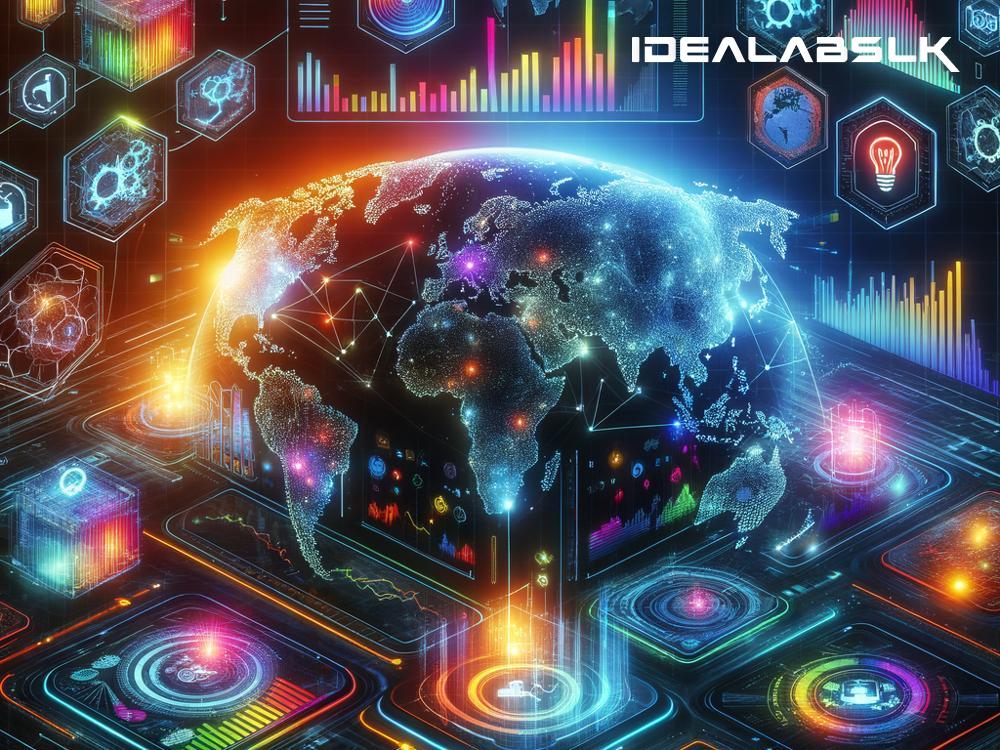Predictive AI: Revolutionizing Supply Chain Optimization
In today's fast-paced world, managing a supply chain can feel like trying to solve a giant, complex puzzle. This is where predictive AI comes in, essentially acting as a super-smart assistant, making our lives much easier and our decisions much smarter. But what exactly is predictive AI, and how does it work its magic in supply chain optimization? Let's dive in with some simple explanations.
What is Predictive AI?
Predictive AI, or predictive artificial intelligence, is a form of technology that uses data, statistical algorithms, and machine learning techniques to forecast future outcomes. Imagine a weather forecast, but instead of predicting whether you'll need an umbrella tomorrow, it's predicting things like how many units of a product will be sold next month, when a machine might fail, or how market trends might affect your supply chain.
The Role of Predictive AI in Supply Chain Optimization
Supply chains are all about getting the right products to the right places at the right times. But achieving this optimum balance is tremendously challenging due to the unpredictable nature of factors like demand, supply issues, and logistics hurdles. Predictive AI steps into this chaotic world to bring order and efficiency. Here’s how it works its charm:
Forecasting Demand
One of the crown jewels of predictive AI in supply chain optimization is demand forecasting. By analyzing historical sales data, seasonality, market trends, and other relevant data points, predictive AI models can forecast future demand with remarkable accuracy. This enables companies to adjust their production schedules, manage inventory more effectively, and avoid overstock or stockouts, which can save a lot of money and reduce waste.
Improving Inventory Management
Inventory management is a delicate balancing act. Too much inventory can tie up valuable resources, while too little can result in lost sales. Predictive AI helps by providing more accurate forecasts and identifying patterns that humans might miss. This way, businesses can maintain the optimal amount of stock, ensure high customer satisfaction, and minimize costs associated with storage and obsolescence.
Optimizing Logistics and Delivery
Predictive AI also plays a crucial role in streamlining logistics and delivery operations. By analyzing past delivery times, routes, weather data, and current traffic conditions, AI models can predict the best routes and delivery schedules. This not only helps in reducing fuel costs and delivery times but also contributes to a greener planet by minimizing carbon emissions.
Anticipating Supply Chain Risks
In an interconnected world, supply chains are vulnerable to a wide range of risks, from natural disasters to geopolitical tensions. Predictive AI aids in identifying potential risks by analyzing various data sources, including news feeds, weather reports, and social media. By anticipating these risks, businesses can devise contingency plans, thereby minimizing disruptions to their supply chains.
How Does Predictive AI Learn and Adapt?
The secret sauce behind predictive AI’s capabilities is machine learning. Machine learning algorithms use historical data as a learning foundation, identifying patterns and relationships within the data. As new data becomes available, these algorithms adapt and refine their predictions, continually improving over time. This learning process is akin to how humans learn from experience, but it happens at a scale and speed that’s simply out of reach for human brains.
The Future of Predictive AI in Supply Chain
The possibilities are endless. As technology advances, so will the sophistication of predictive AI models, leading to even more accurate forecasts and insights. Incorporating technologies like IoT (Internet of Things) sensors and blockchain can provide predictive models with real-time data, further enhancing their capabilities. The future might see fully autonomous supply chains, where predictive AI not only forecasts but also takes actions, like re-routing shipments in real time or automatically adjusting production schedules.
Conclusion
Predictive AI is transforming supply chains from reactive to proactive and predictive operations. By enabling better decision-making through accurate forecasts and risk assessment, businesses can achieve higher efficiency, lower costs, and better customer satisfaction. As we move forward, the integration of predictive AI in supply chains will no longer be optional but a necessity for staying competitive in a rapidly changing world. So, let's embrace this intelligent assistant with open arms and watch as it revolutionizes the way we manage supply chains.
In simple terms, predictive AI is the game-changing tool that's making supply chains smarter, faster, and more reliable. And as we look towards the future, it's clear that the journey of predictive AI and supply chain optimization has only just begun.

